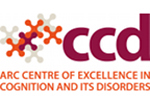
Dr. Kirsten Dalrymple
Research Associate
Institute of Child Development
University of Minnesota
51 East River Parkway
Minneapolis, MN
55455
 kad [at] umn.edu
kad [at] umn.edu
 Minneapolis +1 (612) 624 6805
Minneapolis +1 (612) 624 6805
 St. Paul +1 (612) 626 2959
St. Paul +1 (612) 626 2959
download CV 
I am currently located at the Institute of Child Development at the University of Minnesota, where I am working in the E-Lab with Dr. Jed Elison.
I am very excited to continue my research on developmental prosopagnosia in children at the Institute, while continuing an active collaboration with Brad Duchaine and the Social Perception Lab in the Department of Psychological and Brain Sciences at Dartmouth College
I am also an Associate Investigator with the Australian Research Council Centre of Excellence in Cognition and its Disorders.
Focus of Research
My research interests involve the study of normal and abnormal visual perception. My primary research is aimed at studying developmental prosopagnosia in children. Developmental prosopagnosia (DP) is the inability to recognize faces without any known brain injury or anomaly, a condition that is estimated to affect about 2% of the general population.
Research on DP with adult participants has led to important findings about the cognitive, neural, and genetic bases of DP, yet little has been done to study this condition in children. This is surprising given that DP is due to a failure to develop the mechanisms necessary for face recognition and therefore emerges early in life. Critically, the study of DP in children will allow us answer important questions about abnormal and normal face perception, and the function and development of the visual system in general. Learning about the etiology and progression of DP may also lead to deeper understanding of other selective developmental deficits such as dyslexia, dyscalculia, and specific language impairment.
Three primary goals of my research on childhood DP are to 1) develop diagnostic tools, 2) study its developmental trajectory, and 3) identify and treat individuals with DP.
Click here to learn about developmental prosopagnosia in childhood.
Sign up here for email updates regarding research on face blindness in children.
My other research interests involve investigating the neural mechanisms of visual perception through the study of adults with abnormal high-level vision (e.g. acquired prosopagnosia, prosopometamorphopsia, simultanagnosia, etc...)
Do you think that your child may be face blind? Email me at kad@umn.edu.
Tests of Face Perception for Children and the Dartmouth Database of Children's Faces (DDCF)
During the process of developing tests of face perception for children, we took photos of over 120 children. These children posed 8 different facial expressions and were photographed from 5 different camera angles, under controlled lighting conditions. These facial expressions were rated for their believability by 20 independent raters. The top 40 female and 40 male models were included in a freely available database for use in research studies. To find out more about, or request access to the database, click here. Some of our tests of face perception are also available for download upon request.
Brief CV:
Employment
- 2015-present Research Associate & Lecturer, Institute of Child Development, University of Minnesota.
- 2013-2015 Banting Postdoctoral Fellow, Institute of Child Development, University of Minnesota.
- 2010-2013 Postdoctoral Fellow, Social Perception Laboratory, Department of Psychological and Brain Sciences, Dartmouth College & Institute of Cognitive Neuroscience, University College London.
Education
- 2006 - 2010 PhD Psychology University of British Columbia, Vancouver, Canada.
- 2004 - 2006 MA Psychology University of British Columbia, Vancouver, Canada.
- 2000 - 2004 BSc (Hons) Psychology Queen’s University, Kingston, Canada.
Courses taught
- CPSY 4341: Perceptual Development, University of Minnesota, Fall 2015, 2016, 2017, 2018
- PSYC 6: Introduction to Neuroscience, Dartmouth College, Fall 2011
Honors and Awards
- 2017 Professional and Administrative Council Professional Development Grant, University of Minnesota.
- 2015 Postdoctoral Association Career Development Award, University of Minnesot.a
- 2013-2015 Banting Postdoctoral Fellowship, Canadian Institute for Health Research (CIHR).
- 2010-2011 British Columbia Psychological Association Gold Medal Award for outstanding achievement of a Doctoral student in Psychology.
- 2009 President’s Travel Scholarship in Psychology – Department of Psychology, UBC.
- 2008 Quinn Exchange Fellowship – Department of Psychology, UBC.
- 2008 Demetrios Papageorgis Teaching Assistant Award of Merit – Department of Psychology, UBC.
- 2007 Certificate of Academic Excellence (for outstanding Master’s thesis) – Canadian Psychological Association (CPA).
- 2007 Senior Graduate Studentship – Michael Smith Foundation for Health Research (MSFHR).
- 2006 President’s Travel Scholarship in Psychology – Department of Psychology, UBC.
- 2006 Post-Graduate Studentship (Doctoral) – Natural Sciences and Engineering Research Council of Canada (NSERC).
- 2005 Junior Graduate Studentship – Michael Smith Foundation for Health Research (MSFHR).
- 2005 Post-Graduate Studentship (Master’s) – Natural Sciences and Engineering Research Council of Canada (NSERC).
- 2004 Graduate Entrance Scholarship – Department of Psychology, UBC.
Publications
-
Penton, T., Bate, S., Dalrymple, K.A., Tamm, M., Reed, T., Godovich, S., Kelly, M., Duchaine, B. & Banissy, M.J. (2018). Using high frequency transcranial random noise stimulation to modulate face memory performance in younger and older adults: Lessons learnt from mixed findings. Frontiers in Neuroscience, 12:863, doi: 10.3389/fnins.2018.00863.
 .
.
-
Dalrymple, K. A., Wall, N., Spezio, M.L., Hazlett, H.C., Piven, J., & Elison, J.T. Rapid face orienting in infants and school-age children with and without autism: Exploring measurement invariance in eye-tracking, PloS one, 13(8), e0202875-e0202875
 .
.
- Dalrymple, K. A., Manner, M.D., Harmelink, K.A.,
Teska, E.P. & Elison, J.T. (2018). An examination of recording
accuracy and precision from eye tracking data from toddlerhood to
adulthood. Frontiers in Psychology, 9(803), doi: 10.3389/fpsyg.2018.00803
 .
.
- Dalrymple, K. A., Visconti di Oleggio Castello, M., Elison, J. & Gobbini, M.I. (2017). Concurrent development of facial identity and expression discrimination. PloS One, 12(6), e0179458.

- Dalrymple, K.A., Elison, J.T., &
Duchaine, B. (2017). Face-selective and domain-general visual processing
deficits in children with developmental prosopagnosia. Quarterly Journal of Experimental Psychology, 70(2), 259-275.

- Corrow, S.L., Dalrymple, K.A., & Barton, J.J.S. (2016). Prosopagnosia: Current Perspectives. Eye and Brain, 8, 165-175.

- Dalrymple, K.A. & Duchaine, B. (2016). Impaired face detection may explain some but not all cases of developmental prosopagnosia. Developmental Science, 19(3), 440-451.

- Dalrymple, K.A., & Palermo, R. (2016). Guidelines for studying developmental prosopagnosia in adults and children. Wiley Interdisciplinary Reviews: Cognitive Science.

- Alonso‐Prieto, E., Pancaroglu, R., Dalrymple, K.A.,
Handy, T., Barton, J.J.S, & Oruc, I. (2015). Temporal dynamics of
the face familiarity effect: bootstrap analysis of single‐subject ERP
data. Cognitive Neuropsychology, 32(5), 266-282.

- Dalrymple, K.A., Garrido, L., &
Duchaine, B. (2014). Dissociation between face perception and face
memory in adults, but not children, with developmental prosopagnosia. Developmental Cognitive Neuroscience, 10, 10-20.

- Dalrymple, K.A.*, Fletcher, K.*, Corrow,
S., das Nair, R., Barton, J., Yonas, A., & Duchaine, B. (2014). “A
room full of strangers every day”: The psychosocial impact of
developmental prosopagnosia on children and their families. Journal of Psychosomatic Research, 77(2), 144-150.

- Dalrymple, K.A.*, Davies-Thompson, J.*, Oruc,
I., Handy, T., Barton, J., & Duchaine, B. (2014). Spontaneous
perceptual facial distortions correlate with ventral occipitotemporal
activity. Neuropsychologia, 59, 179-191.

- Dalrymple, K.A. (2014). Prosopagnosia. In: M.J. Aminoff & R.B. Daroff (Eds.). Encyclopedia of the Neurological Sciences
2E. San Diego: Academic Press.

- Dalrymple, K.A., Gomez, J., & Duchaine,
B. (2013). The Dartmouth Database of Children's Faces: Acquisition and
validation of a new face stimulus set. PLoS ONE 8(11): e79131.

- Dalrymple, K.A., Gray, A., Perler, B.,
Birmingham, E., Bischof, W.F., Baron, J.J.S., & Kingstone, A.
(2013). Eying the eyes in social scenes: Evidence for top-down control
of attention in simultanagnosia. Cognitive Neuropsychology, 30(1), 25-40.

- Dalrymple, K.A., Barton, J.J.S., & Kingstone, A. (2013). A world unglued: Simultanagnosia as a spatial restriction of attention. Frontiers in Neuroscience.

- Dalrymple, K.A., Corrow, S., Yonas, A., & Duchaine, B. (2012). Developmental prosopagnosia in childhood. Cognitive Neuropsychology, 29(5-6), 393-418.

- Oruç, I., Krigolson, O., Dalrymple, K.A.,
Nagamatsu, L., Handy, T., & Barton, J. (2011). Bootstrap
analysis of the single subject with event related potentials. Cognitive Neuropsychology, 28(5), 322-337.

- Dalrymple, K.A., Oruç, I., Duchaine, B.,
Pancaroglu, R., Fox, C.J., Iaria, G., Handy, T.C. & Barton, J.J.S.
(2011). The neuroanatomic basis of the right face-selective N170 in
acquired prosopagnosia: A combined ERP/fMRI study. Neuropsychologia, 49, 2553-2563.

- Dalrymple, K.A., Birmingham, E., Bischof,
W.F., Barton, J.J.S., & Kingstone, A. (2011). Opening a window on
attention: Documenting and simulating recovery from simultanagnosia. Cortex, 47(7), 787-799.

- Dalrymple, K.A., Birmingham, E., Bischof,
W.F., Barton, J.J.S., & Kingstone, A. (2011). Experiencing
simultanagnosia through windowed viewing of complex social scenes. Brain Research, 1367(7), 265-277.

- Dalrymple, K.A., Bischof, W., Cameron, D.,
Barton, J., & Kingstone, A. (2010). Simulating simultanagnosia:
spatially constricted vision mimics local capture and the global
processing deficit. Experimental Brain Research, 202 (2), 445-455.

- Dalrymple, K.A. & Kingstone, A. (2010). Time to act and attend to the real mechanisms of action and attention. British Journal of Psychology, 101, 213-216.

- Dalrymple, K.A., Kingstone, A., & Handy, T.C. (2009). ERP evidence for a dual-locus model of Global/Local processing. Cognitive Neuropsychology, 26, 456-470.

- Dalrymple, K.A., Bischof, WF, Cameron, D.,
Barton, J.J.S., & Kingstone, A. (2009). Global perception in
simultanagnosia is not as simple as a game of connect-the-dots. Vision Research, 49, 1901-1908.

- Dalrymple, K.A., Kingstone, A., &
Barton, J.J.S. (2007). Seeing trees OR seeing forests in
simultanagnosia: Attentional capture can be local or global. Neuropsychologia, 45, 871-875.

*These authors contributed equally.
Media attention
2016 - "'Tunnel vision' doesn't begin to describe this woman's sight" BBC Future.
2016 - "What is face blindness? Face blindness, or prosopagnosia, is more than just "being bad with faces"" - ScienceFriday.com
2015 - "This real medical condition makes people see dragons!" - Menshealth.com
2014 - "Face blindness – when you can't recognise a familiar face" – The Guardian, UK
Page last updated December 13, 2018

